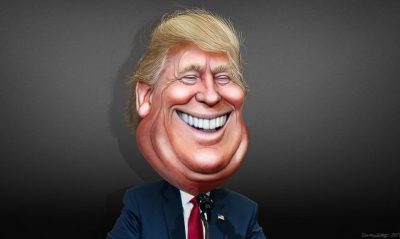
The Iranians concede that the move by President Donald Trump will bring with it additional economic suffering and will also likely upset the delicate political balancing act prevailing in their country, with President Hassan Rouhani being blamed by conservatives for having entered into the agreement in the first place. It was an agreement regarding which the president had expended considerable political equity, and he has also been accused of exaggerating its benefits, having claimed some months ago that all sanctions had been lifted, which was not the case. The stagnant state of Iran’s economy has produced considerable unrest in recent months and it is anticipated that more will be on the way as the economy continues to decline.
The major debate taking place is over where one goes from here. There are two distinct schools of thought, one of which basically asks whether continuation of what is essentially a unipolar world, supported by US power, in which the United States continues to be able to assert its vision of world global good order. This has been defined by Washington as a mixture of expansion of liberal democracy plus more-or-less free trade.
Even though it was Israel and Saudi Arabia that were driving the rejection of the Iran deal, it was the United states that had the economic, military and political muscle to take the steps necessary to disrupt an international agreement that had other major signatories and the endorsement of the UN Security Council.
The alternative view is quite different, asserting that Washington’s blow against Iran will ultimately be a Pyrrhic victory for Donald Trump as the blatant interference in what was a universally accepted largely successful treaty in which Iran was fully compliant will produce a global backlash against American interests. US military power and economic might give it considerable leverage to protect itself against any number of adversaries, but its huge and ultimately unsustainable budget deficits and debt make it potentially vulnerable. It is therefore likely that the first counterstrokes against Trump’s vision of America First will be to accelerate steps directed against the use of the US dollar as the world’s principal reserve currency.
There have already been moves in that direction, but they have succeeded in going only so far before being marginalized. This time they might stick because there is a large and growing consensus that America has finally gone too far in its role as global bully. One keen observer opines that the shift to a multipolar polity has now become inevitable due to American insensitivity and political blindness. The economic shifts that will, by some judgments, sink the US economy in five to ten years and lead to the rise of competing economic centers in countries like Russia and Brazil. It will be the beginning of an era in which Washington no longer will have either the resources or the will to attempt to maintain some form of global hegemony.
No surprisingly, the participants at the multinational conference I am attending would welcome the day when an interventionist “leader of the free world” America ceases to be. Many Americans would also welcome it, though without the economic disruption.
*
Featured image is from the author.
The original source of this article is Council for the National Interest
Copyright © Philip Giraldi, Council for the National Interest, 2018













